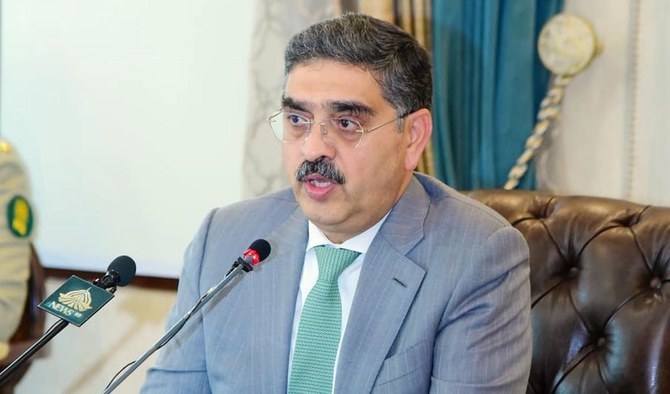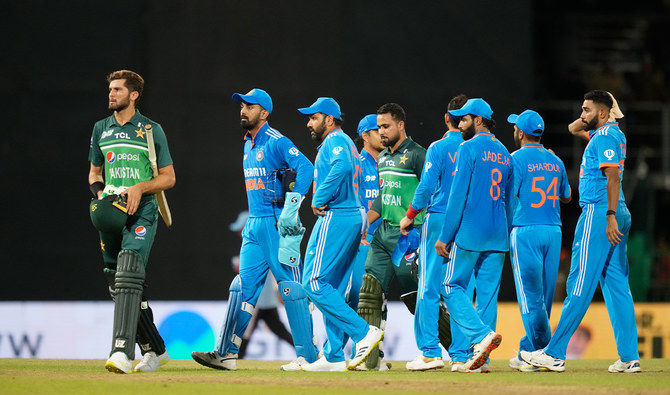ISLAMABAD: Caretaker Prime Minister Anwaar-ul-Haq Kakar said this week he would not “specially” invite the Indian cricket team or any other international team to tour Pakistan if they did not want to come to the country in the first place, amid tensions between the cricket boards of the two countries over the ongoing Asia Cup 2023 tournament.
Political tensions between India and Pakistan mean the two neighbors only play cricket against each other at international venues and global competitions. Pakistan, who were originally confirmed as the sole host of the Asia Cup 2023 tournament, were forced to agree to a “hybrid model” which saw a majority of the matches being hosted in Sri Lanka after India refused to tour the country.
According to media reports, the Pakistan Cricket Board (PCB) last week suggested moving the Asia Cup matches back to Pakistan when heavy rain was forecast for the remainder of the tournament in Colombo. The Asian Cricket Council (ACC), headed by the secretary of the Indian cricket board Jay Shah, rejected the PCB’s demand and ruled that the tournament would take place in Colombo as per the original schedule. In a statement, Shah said several stakeholders expressed reservations about hosting the entire Asia Cup in Pakistan due to the country’s security and economic conditions.
During an interview with a private news channel on Monday, Kakar said Pakistan would take up the issue of India mixing politics with sports at various multilateral forums.
“Why would I specially invite a particular team or a country [to visit Pakistan],” Kakar said when asked whether he would invite the Indian cricket team to tour Pakistan. He added that a lot of international teams were at first hesitant to visit Pakistan but later arrived to play cricket in the country.
“We want to keep the environment in Pakistan congenial and secure, and [if any team] from within the region or outside it wishes to visit Pakistan, we would warmly welcome them,” Kakar said. “But if they don’t want to come here, then you don’t invite anyone forcibly to your home.”
Pakistan are scheduled to host the Champions Trophy cricket tournament in 2025. International cricket has slowly returned to the country’s shores ever since an attack on a Sri Lankan cricket team in 2009 scared teams away from touring Pakistan.
In April 2022, Australia arrived in Pakistan to play a three-match Test series and a three-match ODI series, followed by England who arrived in Pakistan in September 2022 for a seven-match T20I series. In April 2023, New Zealand arrived in Pakistan to play a five-match ODI series, which the hosts won 4-1.













